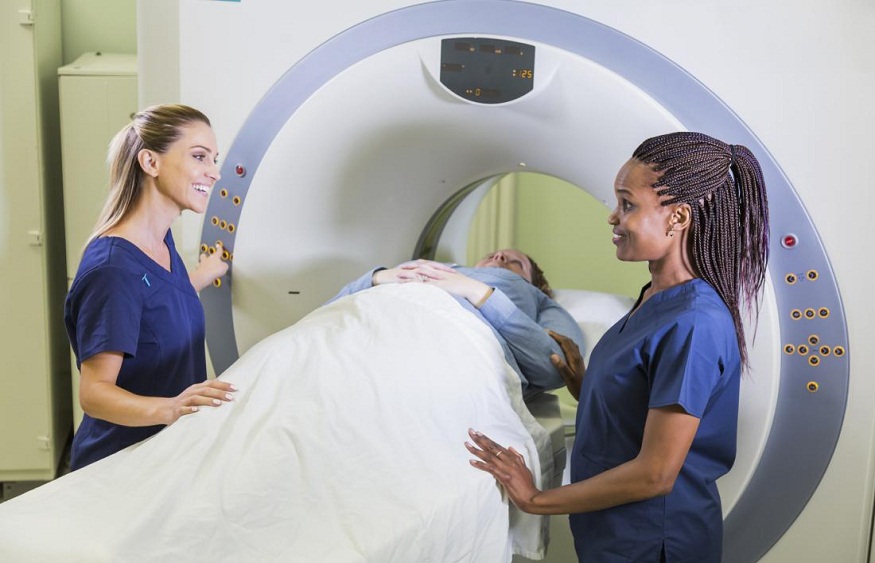Interstitial Lung Disease (ILD) encompasses a diverse group of disorders that involve inflammation and scarring of the lung tissue. This condition can lead to severe lung damage and impact overall respiratory function. Here’s a comprehensive look at the symptoms, diagnosis, and treatment options for ILD, highlighting the role of a cough specialist doctor in Manchester and asthma clinics in managing this challenging condition.
Symptoms of Interstitial Lung Disease
The symptoms of ILD can vary depending on the specific type and severity of the disease. However, some common signs include:
Persistent Cough: One of the hallmark symptoms of ILD is a chronic, dry cough that does not go away with typical treatments. This cough often worsens over time and can be quite debilitating.
Shortness of Breath: Individuals with ILD frequently experience difficulty breathing, especially during physical activities. This breathlessness can progress, leading to discomfort even at rest. If your child is going through this stage, it’s important to consult a respiratory paediatrician in Manchester as soon as you can.
Fatigue: As ILD affects lung function, individuals may feel fatigued. This can impact daily activities and overall quality of life.
Wheezing: Although less common, some individuals with ILD may experience wheezing, a high-pitched whistling sound during breathing.
Clubbing of Fingers: In advanced cases, ILD can cause changes in the fingers and toes, leading to a rounded, club-like appearance of the nails.
Diagnosis of Interstitial Lung Disease
Accurate diagnosis of ILD is crucial for effective management and treatment. The diagnostic process typically involves several steps:
Medical History and Physical Examination: A thorough medical history and physical exam are essential first steps. The paediatric respiratory physician in Manchester will ask the patient about their symptoms, exposure to potential lung irritants, and any family history of lung diseases.
Imaging Tests: High-resolution computed tomography (HRCT) scans are often used to obtain detailed images of the lungs. These scans can help identify patterns of lung damage characteristic of ILD.
Pulmonary Function Tests: These tests measure how well the lungs are working. They assess lung capacity, airflow, and gas exchange to determine the extent of lung impairment.
Bronchoscopy and Lung Biopsy: In some cases, a bronchoscopy may be performed to obtain a sample of lung tissue. A lung biopsy may also be needed to examine tissue samples under a microscope, providing a definitive diagnosis.
Blood Tests: Blood tests can help rule out other conditions and identify markers of inflammation or autoimmunity associated with ILD.
Treatment Options for Interstitial Lung Disease
The ILD treatment aims to manage symptoms, slow disease progression, and improve quality of life. Treatment plans are often tailored to the individual and may include:
Medications: An asthma specialist in Manchester commonly prescribes anti-inflammatory and immunosuppressive medications to reduce inflammation and prevent further lung damage. Corticosteroids, disease-modifying antirheumatic drugs (DMARDs), and antifibrotic agents may be used depending on the specific type of ILD.
Oxygen Therapy: For individuals with significant breathing difficulties, supplemental oxygen therapy can help improve oxygen levels in the blood and alleviate symptoms.
Pulmonary Rehabilitation: This program includes exercise training, breathing techniques, and education to help patients manage their condition and improve their physical endurance.
Lifestyle Modifications: Quitting smoking, avoiding lung irritants, and maintaining a healthy diet are important for managing ILD. Patients may also need to make adjustments to their daily activities to accommodate their reduced lung function.
Lung Transplantation: In severe cases of ILD where other treatments have failed, lung transplantation may be considered as a last resort.
Seeking Specialized Care
For children and adults with respiratory issues, specialized care is crucial. If you are looking for a “pediatric asthma doctor near me” or a cough specialist doctor in Manchester, you might consider visiting the Manchester Child Lung Clinic. The clinic offers comprehensive care and treatment for respiratory conditions and can connect you with a paediatric respiratory physician in Manchester or visit Manchester Child Lung Clinic to take better care of your child.
Additionally, consulting a Respiratory Paediatrician in Manchester can provide valuable insights into managing complex cases of ILD and other lung conditions. Specialists can offer tailored treatment plans and ongoing support to ensure optimal care.
Wrapping Up
Interstitial Lung Disease is a serious condition that requires timely diagnosis and a multifaceted approach to treatment. By working closely with specialized healthcare providers, patients can manage their symptoms effectively and improve their quality of life.

